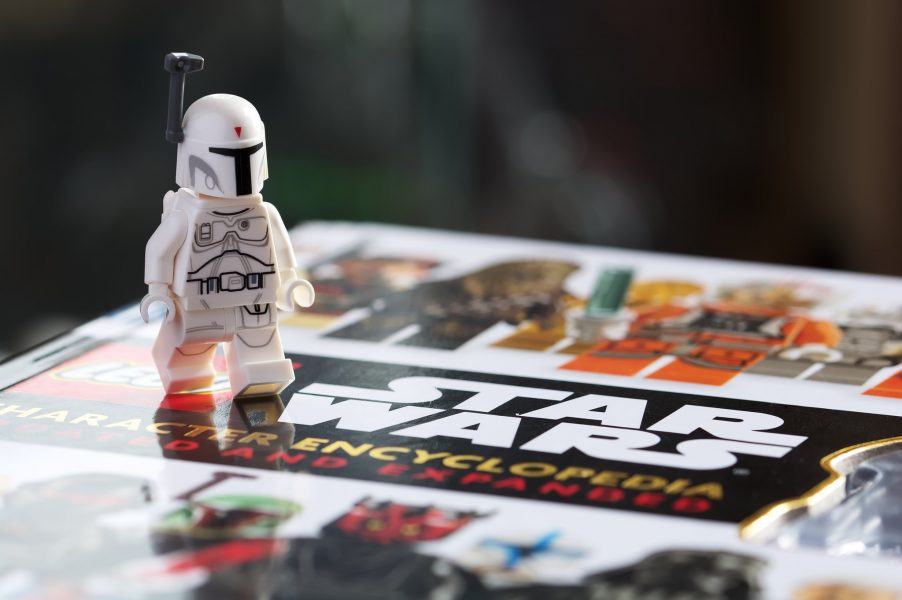Soundtrack Review: The Book of Boba Fett

Joshua Hughes reviews Disney Plus Original Book of Boba Fett’s soundtrack
Spoilers Ahead!
The recent release of the Book of Boba Fett (TBOBF) provides the latest example of the new direction Star Wars soundtracks are taking. The score, composed by Joseph Shirley (link) and the theme, composed by Ludwig Göransson sees a continuation of Göransson’s work on The Mandalorian but also allows for a unique identity for TBOBF. The score is split into two parts, with the first focusing on Fett’s rebirth and his story in Tatooine (chapters 1-4 link). The second on the return of Din Djarin (The Mandalorian), Grogu and a few other familiar faces (chapters 5-7 link).
a darker and more industrial tone
The first track, entitled ‘Rebirth’ gives the series an eerie setting, moving through a deserted Jabba’s Palace and provides an excellent accompaniment to Boba’s flashbacks in the Bacta tank (link). ‘Rebirth’ also gives a good insight on how the music for the series will act as whole, with heavy bass, beating drums, mechanical sounds and drawn-out diminished brass chords. The presence of Brass in the overall score gives an insight on how Shirley aims to portray Fett as a strong figure. The contrast to the typical major brass chorus which is found in John William’s work in Star Wars highlights how Fett is not necessarily a heroic figure, compared to that of the Jedi for example. The contrast is made clearer when compared to the soundtrack from The Mandalorian, with major brass being a significant component of the main theme.
Something not as common in The Mandalorian or other Star Wars scores is the use of choral accompaniment which the Book of Boba Fett uses. The most obvious use of this is in the theme, written by Ludwig Göransson. The main theme is supposedly inspired by the music from a film called “Ronia, the Robber’s Daughter.” as highlighted in a Slash Film article (link). The use of the vocal arrangement as the main theme of the show is extremely effective in giving TBOBF its own identity as the main Star Wars theme has done for the films and The Mandalorian theme has done for its own show. The continued use of the memorable theme throughout the show in different variations allows the different episodes and moments to link effectively, contributing to the overall storytelling ability of the show. The use of other sound effects such as the mechanical sound effect in the track ‘Normal Day at the Office’ gives the show a darker and more industrial tone, reinforcing the unique nature of the score of TBOBF.
The second part of the soundtrack focuses on the return of Din Djarin and how he fits into the story of TBOBF, and the soundtrack immediately adheres to this with the iconic bass recorder indicating his first appearance in the series. The intro theme further signifies this with a combination of themes from The Mandalorian and TBOBF imposing itself on Chapter 5: Return of the Mandalorian. This is continued in the opening track of the main story ‘The Underworld’, with the theme of The Mandalorian playing, yet also developed to signify the progression of the character since the end of season 2. Furthermore, the tracks ‘Faster Than a Fathier’ and ‘Maiden Voyage’ excellently incorporate the theme of The Mandalorian into the episode. Chapter 6: From the Desert Comes a Stranger further develops other Star Wars themes such as Yoda’s theme in the track ‘Life Lessons’ and also the infamous binary sunset theme in the track ‘Teacher’s Pet’.
While the soundtrack of Chapters 5 and 6 don’t fall in line with the score and themes of TBOBF, they pay homage to significant pieces of music from Star Wars which nicely ties in with what I believe the main purpose of TBOBF is. Throughout the series several components of Star Wars are given stories and more screen time, the insight given on the Tusken tribes, the return of the Rankor, the appearance of Cad Bane and not forgetting the titular character being given his own story. Whether well executed or not on screen, I think Joseph Shirley and Ludwig Göransson deserve praise for continuing the positive direction taken in The Mandalorian, musically at least.


